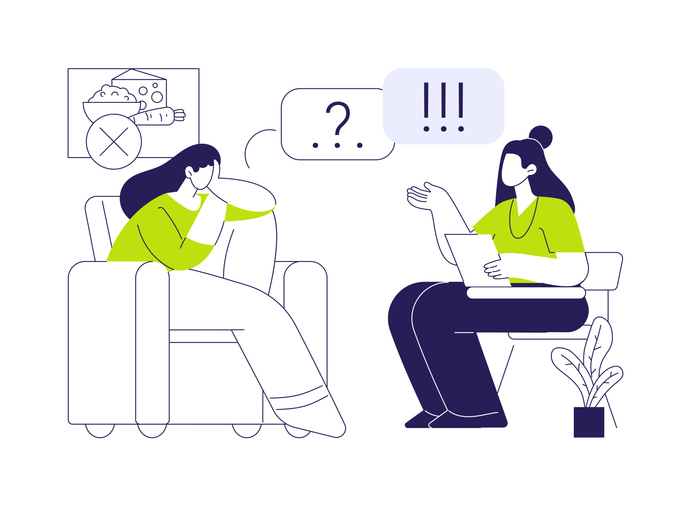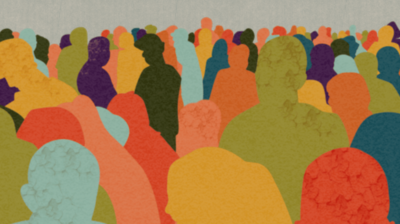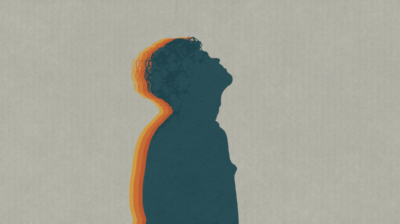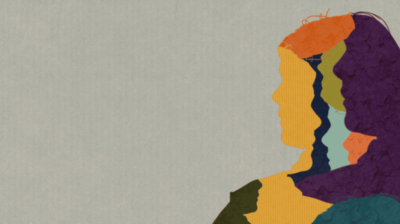How to get help for an eating disorder
Learn more about public and private treatment pathways for adults and children affected by eating disorders.

Suspecting you might have an eating disorder can be frightening and lonely. If you recognise some of the signs and symptoms of an eating disorder, you might feel tempted to ignore them or try to avoid the subject altogether. However, it’s important to remember that you deserve empathy and support. Seeking eating disorder treatment can be a vital step towards feeling better.
You may be uncertain about what exactly you’re experiencing and what it means. If you want to know more before reaching out for help, visit our article on the signs and symptoms of an eating disorder.
Recovery from an eating disorder is not always straightforward; lapses and relapses are common and expected. You might sometimes feel as if you’re taking two steps forward and one step back. Learning to practise self-compassion throughout these improvements and setbacks can support your recovery. Everyone’s recovery journey is different, and while it may take time and patience, recovery from an eating disorder is possible. In this factsheet, you will find information about public and private treatment pathways, as well as types of treatment, for eating disorders. This article will cover:
How to speak to your GP
Public treatment pathways for children and adolescents
Public treatment pathways for adults
Private treatment pathways
Other sources of support for eating disorders
How to get eating disorder treatment
Speaking to your GP
If you have an eating disorder or think you may be developing a problem, consider speaking to your GP about getting support. You may find it helpful to take a look at this resource booklet created by Bodywhys on speaking to your GP.
Your GP may ask you some questions about your eating habits and relationship with food. If you are under the age of 18 and your GP thinks you need to be assessed for an eating disorder, they may refer you to Child and Adolescent Mental Health Services (CAMHS). If you are over the age of 18, your GP may refer you to Adult Mental Health Services (AMHS). Alternatively, your GP may refer you to an Eating Disorder Team, if one is available in your area. If a GP is highly concerned about your physical health, they might refer you to an Emergency Department for urgent medical care.
If you feel like you’re not ready to speak to your GP, you could call the Bodywhys helpline or email [email protected]. The helpline and email service offer non-judgemental and confidential support and information about eating disorders. Bodywhys is open to anyone and is delivered by a team of trained volunteers. No diagnosis is needed to avail of the supports that Bodywhys offers.
Public pathways for eating disorder treatment
Public treatment pathways are available for both adults and young people with eating disorders. Sometimes, navigating these options can feel overwhelming. Below is a simple guide to help you understand the different routes you can take to get support. Each pathway begins with talking to your GP.
Public treatment pathways for under 18
If your GP refers you to your local Child and Adolescent Mental Health Services (CAMHS), a clinician with experience in eating disorders will assess you within a multidisciplinary team. A multidisciplinary team is a group of healthcare professionals from different fields, like doctors, psychologists, and dieticians, who work together to provide the best care for you. If your area has a dedicated Child and Adolescent Eating Disorder Team, this team will assess you.
CAMHS is a community-based mental health service that supports children and young people under the age of 18 with a wide range of moderate to severe mental health difficulties. If you are interested, you can read more about what to expect when attending CAMHS.
What Happens After the Assessment?
An eating disorder assessment can lead to three possible results:
- No eating disorder diagnosis: You will be referred back to your GP
- Eating disorder diagnosis (low to moderate risk): You will be treated as an outpatient (staying at home) by the CAMHS team, or by the local Child and Adolescent Eating Disorder Team if one is available and needed
- Eating disorder diagnosis (moderate to high risk): You will be treated in CAMHS. Depending on the level of risk, you may be referred for inpatient treatment (staying in hospital for a period).
This is part of a “stepped care model”, meaning that the level of care may change (for example, moving from outpatient to inpatient treatment) depending on your changing needs and condition.
Public treatment pathways for adults
If you are over 18, your GP may refer you to the local Adult Mental Health Services (AMHS), where a clinician with experience in eating disorders will assess you within a multidisciplinary team. If your area has a dedicated Adult Eating Disorder Team, this team will assess you. In areas without an Adult Eating Disorder Team, an experienced clinician will treat you within AMHS. AMHS is a community-based mental health service for adults with moderate to severe mental health difficulties.
What Happens After the Assessment?
- No eating disorder diagnosis: You will be referred back to your GP
- Eating disorder diagnosis (low to moderate risk): You will be treated as an outpatient by the AMHS team or by the Adult Eating Disorder Team, if available
- Eating disorder diagnosis (moderate to high risk): You will be treated as either an outpatient or inpatient (staying in the hospital) by the Adult Eating Disorder Team, or by AMHS if no dedicated team is available
Similar to the public pathway for under 18s, this is a stepped care model. This means that your level of care may change, allowing you to move between outpatient and inpatient based on changes in your physical and psychological condition.
For more information, visit Bodywhys for a detailed treatment guide.
The HSE National Clinical Programme for Eating Disorders
The HSE National Clinical Programme for Eating Disorders (NCP-ED) is programme involving the HSE, the College of Psychiatrists of Ireland, and Bodywhys. The NCP-ED is a mental health programme designed to improve rates of recovery among people with anorexia nervosa, bulimia nervosa, binge-eating disorders (BED), and avoidant restrictive food intake disorder (ARFID) where mental health supports are recommended. The NCP-ED provides evidence-based treatments to people affected by eating disorders. They aim to make these treatments available to people at an early stage of their eating difficulties to improve recovery outcomes.
Bodywhys does not provide eating disorder treatment. The organisation provides support for people affected by eating disorders and their families, regardless of where they are in their journey, whether it’s pre-diagnosis, in treatment, or in recovery.
Private eating disorder treatment
Private treatment is also available for eating disorders if you can afford to pay for the treatment yourself. Many private mental health professionals, such as counsellors and psychotherapists, offer “sliding scale” fees or fees that vary according to your financial situation. This means that a private professional may offer you or your family reduced rates if you are on a lower income or receiving social welfare benefits.
If you have private health insurance, your policy may cover treatment. Accessing private treatment can mean avoiding longer waiting times which are common for public treatment. Private treatment typically involves working with different professionals who each bring important skills for recovery. You can access these professionals through a private eating disorder clinic or by going to them separately. Often, people benefit most from a holistic approach, which includes psychological support, nutritional guidance, and family involvement.
It’s also possible to combine both public and private services depending on availability and personal circumstances.
Often, eating disorder treatment will involve a combination of psychological interventions, such as psychotherapy, and nutritional education. Psychotherapists can help you address the underlying causes of your eating disorder. They can also help you manage other coexisting mental health challenges. During nutritional education, a dietitian works with you to establish stable, balanced eating routines and support your physical health. You should expect that your physical health recovery will be just as important as your mental health recovery.
You can greatly improve your chances of recovery by choosing evidence-based treatment for people affected by eating disorders. To learn more about the different types of evidence-based treatments for eating disorders, visit our factsheet on eating disorder treatments.
Other sources of support for eating disorders
People have different support needs at different points during their recovery from an eating disorder. Throughout the recovery process, a person may require support from a range of sources. These can include medical professionals, psychotherapists, and community mental health services (e.g., CAMHS and AMHS), as well as family and friends.
You can reach out to Bodywhys for advice or information on eating disorders. Bodywhys is the Eating Disorders Association of Ireland. They provide confidential support, information, understanding and a listening ear to those affected by eating disorders. You do not need a diagnosis to talk to Bodywhys. Contact Bodywhys’ helpline on 01-2107906 or email [email protected] for more information.
- Bodywhys runs online support groups for people aged 13-18 (Youth Connect) and over 18 (Bodywhys Connect) on a regular basis. Youth Connect: 13 – 18 years (chat based)
- Bodywhys also runs virtual video call-based support groups for adults (18+) and a range of family supports
- The HSE has a Self-Care app, where you can find more information on seeking professional help. The app also gives you access to useful resources, like mindfulness exercises and self-help tips
- If you would like to learn more about eating disorders, listen to Walk in my Shoes’ podcast series. The series covers causes, characteristics, and common misconceptions, and features Dr Clare O’Toole, Consultant Psychiatrist from St Patrick’s Mental Health Services
Feeling overwhelmed and want to talk to someone?
- Get anonymous support 24/7 with our text message support service
- Connect with a trained volunteer who will listen to you, and help you to move forward feeling better
- Whatsapp us now or free-text SPUNOUT to 50808 to begin.
- Find out more about our text message support service
If you are a customer of the 48 or An Post network or cannot get through using the ‘50808’ short code please text HELLO to 086 1800 280 (standard message rates may apply). Some smaller networks do not support short codes like ‘50808’.






